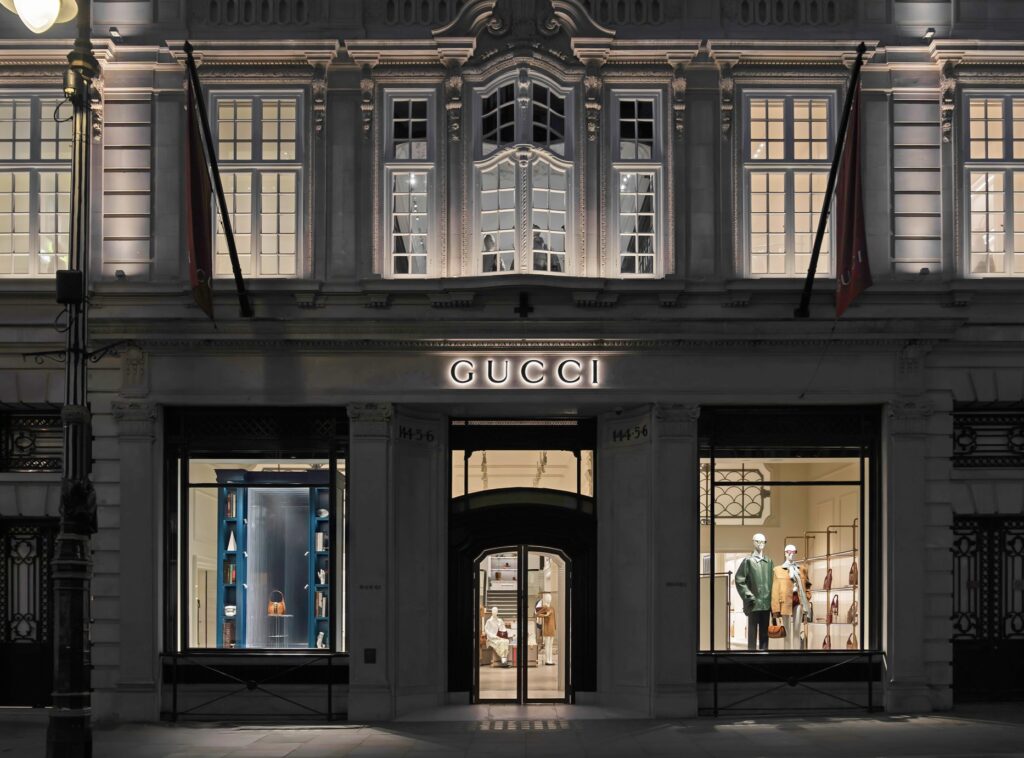Over the weekend of October 26, 2019, rumors began to swirl with intensity that a multi-billion deal was quietly coming into fruition between LVMH Moët Hennessy Louis Vuitton and Tiffany & Co. Within days, it would become clear that there was merit to the chatter, with Tiffany & Co. revealing that it had, in fact, “received an unsolicited, non-binding proposal from LVMH to acquire Tiffany for $120 per share in cash.” However, the New York-headquartered jewelry company was said to have swiftly “rebuffed” the $14.5 billion offer.
Within weeks, more of the closely-guarded story had unfolded. Despite the board for the 182-year old Tiffany & Co. reportedly rejecting LVMH’s initial offer as “too low to become the basis for negotiations,” the parties – which used codenames in connection with their behind-the-scenes dealings to prevent leaks (Tiffany used “Tea” and LVMH went by “Latte,” according to Reuters, in a nod to famed film “Breakfast at Tiffany’s”) – did not part ways. In fact, despite the pushback, LVMH “remained engaged,” Reuters reported in November, and began “considering a new offer” for Tiffany in furtherance of its quest to bolster the smallest division under its sweeping ownership umbrella: jewelry.
By late November, the two giants had sealed their deal. In a statement released on November 25, LVMH declared that it, “the world’s leading luxury group,” and Tiffany & Co., “the global luxury jeweler … have entered into a definitive agreement whereby LVMH will acquire Tiffany for $135 per share in cash, in a transaction with an equity value of approximately $16.2 billion.”
It would be the largest deal in the fashion/luxury space; topping the $13 billion bid that LVMH paid to bring the long-affiliated Christian Dior brand under its ownership umbrella in 2017.
The two luxury players had come to terms, but the deal, itself, was not quite done (and still is not). That would require the approval of Tiffany’s shareholders, for one thing, something that was accomplished by way of a “special meeting of Tiffany & Co. stockholders” on Tuesday. In a statement, LVMH asserted that the publicly-traded jewelry company’s shareholders have “voted overwhelmingly to approve the previously announced merger agreement.”
The vote in favor of the parties’ “merger agreement” (and the terms associated with it) – which Tiffany & Co. said in a release in December was “recommended to stockholders” by the jewelry stalwart’s board of directors – was “largely expected,” according to investing insight publication Motley Fool. But the seemingly smooth merger-in the-making is not without at least some pushback. Underway in the background of the nearly-culminated acquisition is a pending challenge.
According to a complaint that was rather quietly filed with a federal court in Delaware last month, Tiffany & Co. stockholder John Thompson has accused the jewelry company and its board of directors of submitting a proxy statement to the U.S. Securities and Exchange Commission (“SEC”) on December 18 that is “false and misleading” as a result of its failure to include “material information with respect to the proposed transaction.”
In the lawsuit that Thompson filed on behalf of himself and other “similarly situated” individuals (i.e., the “hundreds, if not thousands” of other public holders of the outstanding 119,943,050 shares of Tiffany common stock”), he accuses Tiffany and its board members of violating sections of the Securities Exchange Act of 1934, a federal law that governs the trading of securities in the U.S., by “disseminated [a] false and misleading Proxy Statement.”
“By virtue of their positions within the company, the individual defendants were aware of [the] information [required to be included in the Proxy Statement] and their duty to disclose this information,” and yet, failed to meet those requirements, Thompson argues by “omitting material information regarding [Tiffany’s] financial projections,” and “the analyses performed by the Company’s financial advisors in connection with the Proposed Transaction, Centerview Partners and Goldman Sachs,” among other things.
More than that, Thompson claims that Tiffany and its board did not set out “the circumstances under which the ‘additional discretionary fee of up to approximately $16 million’ is payable to Goldman, and whether the individual defendants intend to pay Goldman this fee.” This is crucial, he argues, as“full disclosure of investment banker compensation and all potential conflicts is required due to the central role played by investment banks in the evaluation, exploration, selection, and implementation of strategic alternatives.”
As a result of the foregoing, Thompson – who does not specify how many shares he holds in the company in his complaint – claims that he and the potential class of fellow plaintiffs “are threatened with irreparable harm” unless the court “preliminarily and permanently enjoins the defendants and all persons acting in concert with them from proceeding with, consummating, or closing” the LVMH merger. He has also asked the court to require Tiffany to “disseminate a Proxy Statement that does not contain any untrue statements of material fact and that states all material facts required in it or necessary to make the statements contained therein not misleading.”
In a release late last month, Wilmington, Delaware-based law firm Rigrodsky & Long, P.A., which is representing Thompson, stated that at the heart of the lawsuit is “an attempt to secure shareholder support for the proposed transaction,” which Tiffany allegedly facilitated by issuing “materially incomplete disclosures in its proxy statement.”
Despite the pending litigation, Motley Fool’s James Brumley states that the acquisition “is still expected to close in the middle of 2020, subject to the receipt of regulatory approvals and satisfaction or waiver of other customary closing conditions.”
A rep for Tiffany & Co. did not respond to a request for comment.
UPDATED (February 13, 2020): Counsel for Thompson filed a notice of voluntary dismissal on February 12 (potentially as a result of a settlement between the parties), and on February 13, the court formally closed the case.
*The case is John Thompson v. Tiffany & Co., et al, 1:20-cv-00009 (D.Del.)











